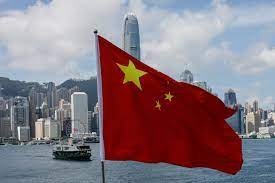$BA
#Boeing #737Max #ChinaUSTradeWar #TradeTensions #AircraftDeliveries #Aviation #KellyOrtberg #GlobalTrade #AerospaceIndustry #USChinaRelations #Manufacturing #Export
In a significant development that underscores the rising tensions in the ongoing trade war between the United States and China, Boeing’s CEO, Kelly Ortberg, has recently announced a stark repercussion for the aerospace giant. According to Ortberg, China has ceased taking deliveries of its aircraft, a move that has immediate and tangible implications not just for Boeing, but for the aviation industry at large. This halt specifically affects the 737 Max planes, which were already in China and slated for delivery to various Chinese carriers. In response to this situation, these aircraft have been flown back to the U.S., signifying a physical and metaphorical retreat in the face of escalating trade hostilities.
The cessation of Boeing aircraft deliveries to China represents a critical juncture in the already strained US-China trade relations. The 737 Max, a model that has faced its share of controversy and scrutiny globally, now finds itself at the center of an international trade conflict. This situation is not just a logistical headache for Boeing but also a symbol of the broader economic and geopolitical frictions between the two superpowers. The implications of China’s decision extend beyond immediate financial losses or disruptions in supply chains; they underscore the fragility of global trade mechanisms and the potential for significant shifts in international business practices and partnerships.
For Boeing, the return of these planes to the U.S. soil is fraught with challenges. Beyond the logistics of transportation, there are questions about storage, potential sales to other parties, and most critically, what this means for Boeing’s future in the Chinese market. China is one of the largest markets for commercial aircraft, driven by the country’s burgeoning aviation sector and its growing middle class’s demand for air travel. Being effectively locked out, even temporarily, from such a vital market poses long-term strategic challenges for Boeing, potentially impacting its market share, financial forecasts, and global expansion plans.
This development serves as a stark reminder of the complexities and vulnerabilities inherent in global trade, especially in sectors as competitive and politically sensitive as aerospace. It also highlights the potential for the ongoing trade war to reshape not just the immediate business landscape but the very nature of international commerce and diplomatic relations. As companies like Boeing navigate these turbulent waters, the outcomes of such trade disputes will likely reverberate through global markets, affecting stakeholders across industries and borders. The situation invites a reevaluation of trade policies, market strategies, and the principles governing international business engagements in the 21st century.






Comments are closed.